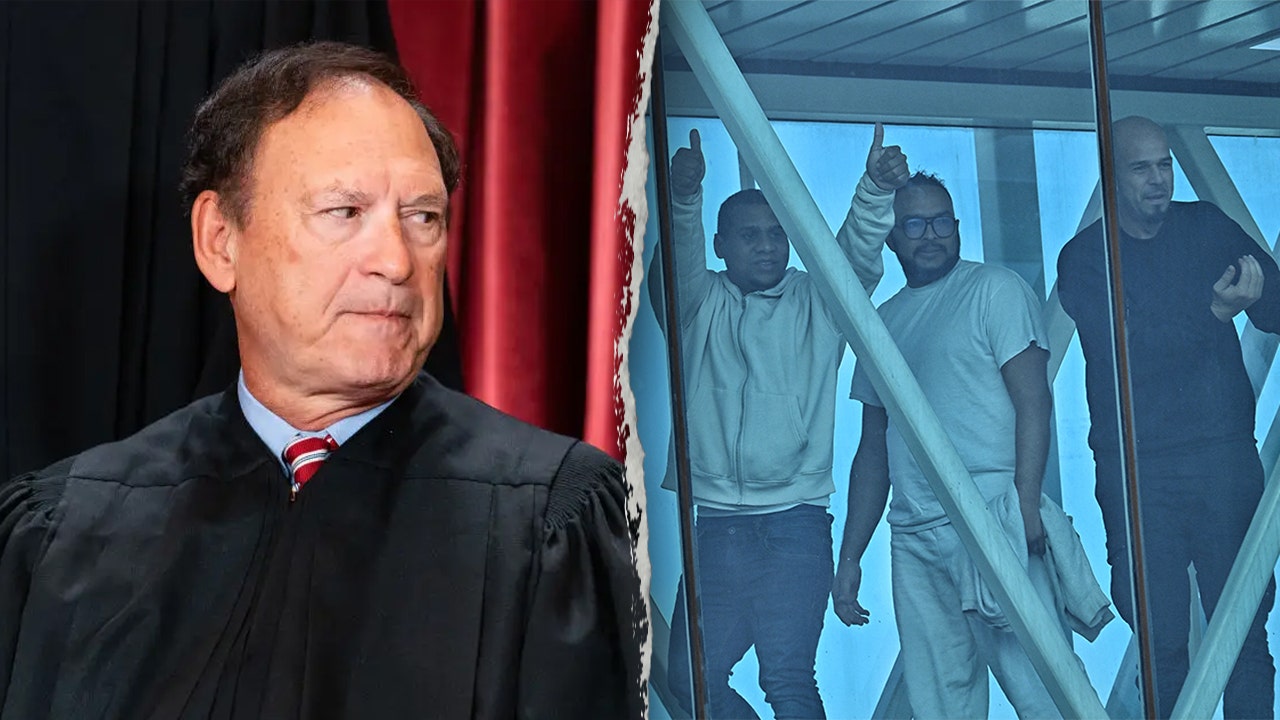Alito Criticizes SCOTUS Halt on Deportations: A Deep Dive into the Ruling and Its Implications
Editor’s Note: Justice Alito's criticism of the Supreme Court's decision to halt deportations has been released today, sparking significant debate. This article analyzes the ruling, its context, and its potential ramifications.
Why This Matters: The Stakes of Immigration Policy in the Supreme Court
The Supreme Court's intervention in deportation proceedings is a pivotal moment in the ongoing national conversation about immigration policy. Justice Alito's dissenting opinion highlights the deep divisions within the court and underscores the high stakes involved in balancing national security, humanitarian concerns, and legal precedents. This article will delve into the specifics of the ruling, examining the key arguments and their potential impact on future immigration cases. Understanding this decision is crucial for anyone following US immigration law, legal procedure, and political developments.
Key Takeaways
| Point | Description |
|---|---|
| SCOTUS Ruling Halt | Supreme Court temporarily blocks deportations pending further review. |
| Alito's Dissent | Justice Alito criticizes the decision, highlighting concerns about legal precedent and procedure. |
| Policy Implications | Potential impact on future immigration cases and enforcement practices. |
| Public Opinion | Significant public and political reaction anticipated. |
| Legal Challenges | The ruling's vulnerability to future legal challenges and its potential for appeals. |
Alito Criticizes SCOTUS Halt on Deportations
The Supreme Court's recent decision to temporarily halt deportations has ignited a firestorm of controversy, with Justice Samuel Alito penning a sharply worded dissent. The ruling, issued [Insert Date of Ruling], places a temporary freeze on deportation proceedings, pending a full review of the underlying legal arguments. This unprecedented action has significant implications for immigration policy and the balance of power between the judicial and executive branches. The heart of the matter lies in [briefly explain the core legal issue at the heart of the deportation case].
Key Aspects of the Ruling
- The Legal Basis: The Supreme Court’s decision was based on [explain the legal basis for the decision, citing relevant laws or precedents].
- The Dissenting Opinion: Justice Alito's dissent argues that [summarize Alito's main arguments against the halt on deportations].
- The Potential Impact: This ruling could significantly impact [explain the potential impact on the affected individuals, the immigration system, and future legal challenges].
Detailed Analysis: Unpacking Alito's Critique
Justice Alito's dissent centers on [detail Alito's main criticisms]. He argues that the majority's decision [explain the majority's decision and how Alito disagrees]. This disagreement highlights a fundamental divide within the Supreme Court regarding [explain the fundamental legal or philosophical disagreement]. The implications of this disagreement extend far beyond this single case, potentially affecting how future deportation cases are handled.
Interactive Elements: Understanding the Implications
The Role of Executive Power
The Supreme Court's decision raises questions about the appropriate balance of power between the executive branch (responsible for enforcing immigration laws) and the judicial branch (responsible for interpreting them). The halting of deportations could be seen as a limitation on the executive's authority, a point likely emphasized by Justice Alito's dissent. This raises broader questions about the role of the Supreme Court in shaping immigration policy.
The Human Cost of Delayed Deportations
The temporary halt on deportations has immediate consequences for those facing removal. For some, this may offer a reprieve; for others, it may prolong uncertainty and anxiety. [Discuss potential effects on those affected by the ruling – both positive and negative]. Weighing the human cost of any legal decision is a critical factor often highlighted in public debate.
People Also Ask (NLP-Friendly Answers)
Q1: What is the Supreme Court's ruling on deportations?
A: The Supreme Court temporarily halted deportations pending a full review of the underlying legal arguments, resulting in a dissent from Justice Alito.
Q2: Why is Justice Alito criticizing the ruling?
A: Justice Alito believes the ruling disrupts established legal precedent and improperly limits the executive branch's authority in enforcing immigration laws.
Q3: How will this ruling affect future deportation cases?
A: The ruling's long-term impact is uncertain, but it could influence future cases and shape the legal landscape surrounding deportation proceedings.
Q4: What are the potential challenges to this ruling?
A: The ruling is subject to further legal challenges and appeals, potentially leading to future revisions or overturning of the temporary halt.
Q5: What can I do to learn more about this issue?
A: Follow reputable news sources for updates, research the Supreme Court’s decision and related legal documents, and explore resources dedicated to immigration law.
Practical Tips for Understanding Supreme Court Decisions
- Read the Ruling: Access the full text of the Supreme Court's decision and Justice Alito's dissent.
- Seek Expert Commentary: Consult legal experts and news analysis for informed perspectives.
- Understand the Legal Precedents: Research relevant past Supreme Court cases cited in the ruling.
- Follow the Legal Proceedings: Stay updated on any further appeals or legal challenges.
- Consider Multiple Perspectives: Analyze the various viewpoints presented in the debate.
Summary
Justice Alito's dissent against the Supreme Court's temporary halt on deportations reveals significant divisions regarding the balance of power and legal interpretation in immigration policy. The ruling's long-term impact remains to be seen, but it undoubtedly marks a significant development in the ongoing debate.
Closing Message
The Supreme Court's decision, and the subsequent criticism, highlight the complex and multifaceted nature of immigration law. It compels us to consider the balance between legal precedent, executive authority, and humanitarian concerns. What are your thoughts on the impact of this ruling?
Call to Action
Share this article with your network and continue the conversation on social media using #SCOTUSDeportations #ImmigrationLaw. Subscribe to our newsletter for ongoing updates on Supreme Court decisions and their impact on society.

